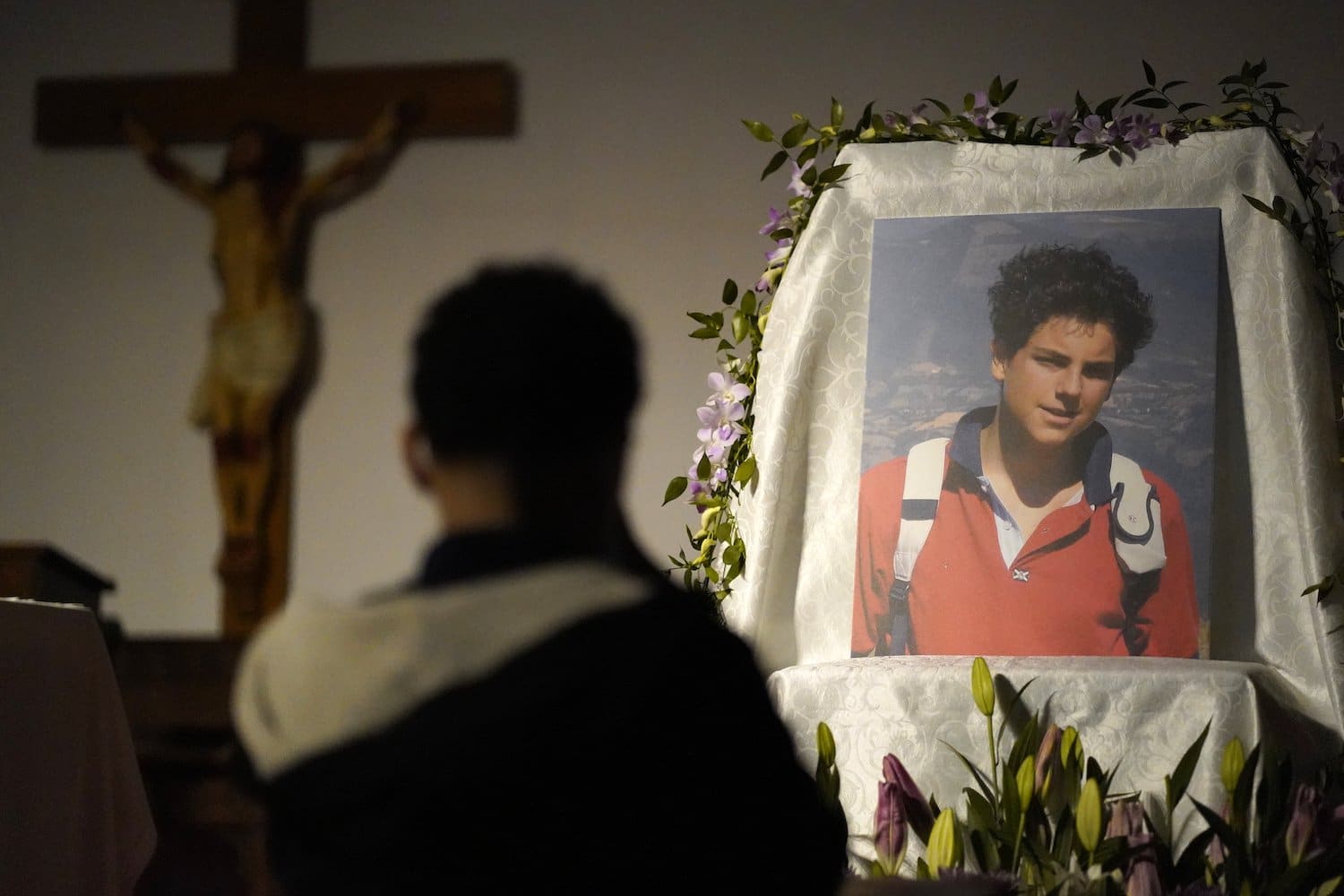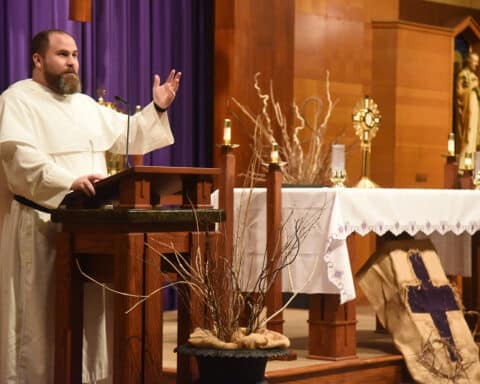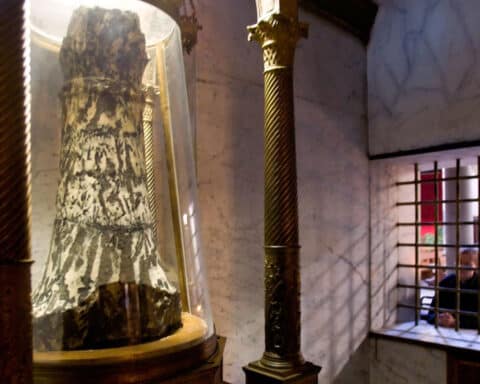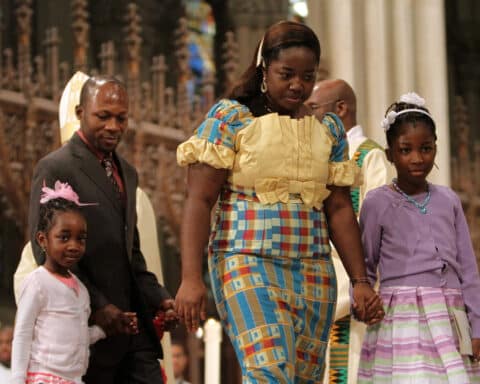Reading “My Son Carlo: Carlo Acutis Through the Eyes of His Mother” (recently released in English translation by OSV), I came across a passage from Carlo’s own writings: “Like creation, the Passion continues. That is, until the end of the world, of this world.”
Sometimes, an insight of a saint is so obviously true that it may seem trite. Yet such obvious truths can also often be fodder for deep meditation. The Passion continues at every Eucharist, from the Last Supper, which prefigured Christ’s sacrifice on the cross the next day, down through every Mass and Divine Liturgy celebrated today, tomorrow and until the end of time. That much, any well-catechized Catholic knows.
United to the act of redemption
Yet so much is contained in that introductory phrase, “Like creation ….” It’s not just that many of us Catholics have had our intellects and imaginations so shaped by a reductionist scientific worldview that we have forgotten that God’s act of creation continues “until the end of the world, of this world.” God is not the divine clockmaker of Enlightenment deism, who set everything in motion and never quit resting after the seventh day. His creative activity continues — a reality that we recognize when we speak of ourselves as “co-creators” with God (for instance, in sexual or artistic conception) but otherwise too often banish from our thoughts. Carlo reminds us of that reality, and that is important enough.
But there’s more. “Like creation, the Passion continues.” Christ’s sacrifice on the cross pays the debt of Adam’s sin and makes it possible for those of us who are baptized into Christ to live, once again, a life of grace. In that way, the Passion is a re-creation of a fallen world, as much a continuous creative action as creation itself. And because the effects of original sin, of that fall of our first parents, continue to distort creation, Christ’s act of re-creation must continue “until the end of the world, of this world.” After Adam’s sin, God did not abandon us but sent his only-begotten Son to restore us to life. And just as we continue to sin because Adam once did, Christ continues to save those who unite themselves to him in baptism and in his sacrifice on the cross, made present always and everywhere that the Eucharist is celebrated.
This is the heart of the sacred mysteries that we celebrate at every Mass. When we participate in Mass or in the Divine Liturgy, we are united to the very act of our redemption, and in fact take part in it. Earlier in that same passage, Carlo writes, “Moreover, it is a very good exercise to unite ourselves intimately to the Passion and to the death of the Lord. Paul said that Christ did through him what was lacking in his Passion.”
Re-creation through Christ
That passage from St. Paul is one with which many people struggle. Is St. Paul saying that Christ’s death was not enough? No; as St. Thomas Aquinas tells us, Christ’s death was sufficient, and more than sufficient, to accomplish our redemption. But in uniting ourselves to Christ in his Passion and death through the liturgical mystery of every Mass, which culminates in the Sacrament of the Eucharist that re-presents that Passion and death right here and right now, we play a role in re-creating the world and allowing Christ to re-create the world through us.
The French mystical poet Pierre-Jean Jouve, who converted to Catholicism in 1924, once wrote that “Mysteries are not truths that lie beyond us; they are truths that comprehend us.” As I wrote in a recent column, the mystery of the Eucharist is not an intellectual problem to be solved but an experience to be lived. By our baptism into Christ, we have become a part of that mystery. Jouve uses the word “comprehend” here to mean that we are contained within the mystery; we experience the truth of the mystery of the Eucharist, the mystery of our redemption, from the inside out. But the other, more common sense of “comprehend” — “to grasp the nature, significance or meaning of” something — is at play here as well. In the Eucharist, we come to understand the nature, significance and the meaning of our lives.
In our participation in the Eucharist, the Passion continues, and through us Christ re-creates the world. The Eucharist is not just a communion among believers that binds us all together (though it is that, too); it is the mystery through which we participate in the death of Christ so that we may rise again in him — not just at the end of time, but right here, right now, in this world that God is creating and Christ re-creates.





